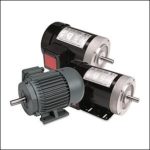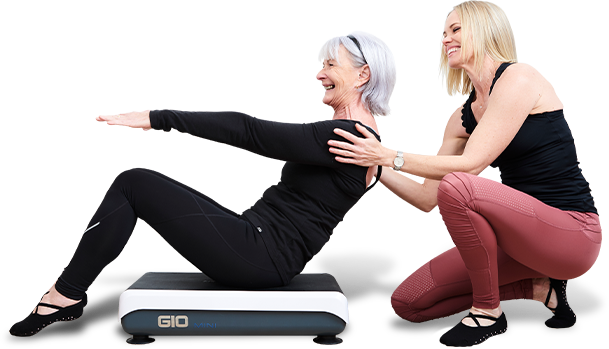Whole body vibration exercises for back pain
Back pain can be caused by more serious issues like the degeneration of intervertebral discs, or by poor posture, muscle tension and spasms, or spending too much time sitting or standing. Usually localized in the lumbar area, back pain can also affect the upper body, and in some cases in radiates into the legs as well, the intensity varying from one person to another.
If the intervertebral discs become damaged and lose their cushioning ability, or the vertebrae wear down, or if the back muscles are stiff and cause spasms, the result can be lower back pain. This symptom can also be caused by herniated discs, by sprains of the ligaments that support the spine, by falls and fractures, trauma, the weakening of bones and muscles, pregnancy or conditions that affect the spine or back muscles.
In most cases, back pain is not a life threatening or disabling symptom, but it can affect one’s quality of life if it is constant. When the pain lasts for more than 3 months, it is called chronic back pain, and it’s usually caused by poor posture, a job that requires one to perform repetitive movements that involve the back muscles and spine, or a condition that affects these organs.
Unlike chronic back pain, acute pain lasts for only a few days or weeks and is the result of an accident, trauma or injury. Some conditions like arthritis for example can also lead to acute back pain, this condition causing limited movement and flexibility, muscle aches and spasms, posture problems and stabbing, shooting pain in the back muscles.
Pain in the lower back region can also result from lifting heavy objects, overstretching the muscles, or practicing exercises that put too much stress on the spine. Pregnancy, spine deformities, sleeping in an uncomfortable position or sitting for prolonged hours can also be triggers for this symptom.
Vibration machine exercises for back pain
Training the back muscles regularly can improve their strength and flexibility, contributing to better spine support and posture, better mobility and decreased muscle spasms or pain. Ideally, a training program that aims to reduce back pain should focus on both larger and smaller muscle groups, and should alternate positions so as to avoid over training the same groups.
Given below are some exercises you can do on a whole body vibration machine to reduce back muscle pain and improve their flexibility and strength.
1. Reverse push-ups
Set the machine to a higher frequency and keep your feet closer to the platform’s edges if you want more stimulation, or bring the feet closer to the center to reduce the amplitude and choose a lower frequency for a less intense exercise.
2. Lateral bends
Stand with your feet on the platform, knees slightly bent, and extend your arms overhead. Without moving your lower body, lift up and out of your rib cage and bend to the right side, hold for 4-5 seconds and return to the starting position. Bend to the opposite side and repeat for 1 minute. Do your best to bend from your waist, without moving the hips.
3. Planks
Another exercise that is especially beneficial for the core is the plank, regular or oblique, this position allowing you to target the abdominal muscles and the back area at the same time. It’s a tough exercise but has great effects on posture and helps in building a slimmer midsection and a more defined waist area.
4. Bridge
Lie with your back on the floor, arms at sides and knees bent, feet on the platform. Press into the heels and lift the hips off the floor, toward the ceiling. Squeeze the glutes and maintain this position for 30-60 seconds, breathing normally. Don’t let your butt touch the ground and keep the core muscles contracted as well.
5. Basic stance
A less demanding exercise is the basic stance, which can be more intense if you select a higher frequency, or more like a massage, for a lower G-force and amplitude. This exercise targets the legs, buttocks and core area, being great for your abdomen and back muscles.
6. Lower back release
If you’re too tired for planks or push-ups and just want to relax and release the tension from the back muscles, this position is perfect. Set the machine to a lower intensity and stand with your feet apart, so as to feel the vibration in the lower back area.
7. Pelvic tilt
Start in the standing position, with feet apart and knees slightly bent, and hold on to the machine’s handles. Engage your core muscles and bring your pelvis forward without. Keep the back straight and maintain this position for 30 seconds, breathing normally. Return to the starting position and repeat for another 30 seconds.
8. Lateral raise
A move that targets the shoulders but works the upper body as well, the lateral raise can be done by using the elastic bands delivered with the Hypervibe machine. You can alternate this exercise with biceps curls and triceps extensions for a quick WBV upper body circuit, or simply stand on the machine for 1 minute and do classical lateral raises.
Have something to add to this article? Comment below or join our Facebook community and share your thoughts with us.







